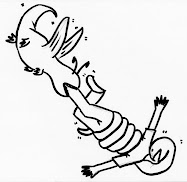The following is a response to a post by fellow blogger Matthew Randall entitled YouTube Political Parody and Satire Videos, that was published to his blog on Friday, May 2, 2008:
I love YouTube. It becomes blatantly obvious if you look over my blog. I’m also a fan of political satire. So I enjoyed reading your post Matthew, thanks.
It was great to see someone go beyond the concepts that Bruns has presented us with this semester. Your discussion of the public sphere, for example, was well supported with relevant quotes from your references (although hyperlinking your references would have been helpful) and demonstrates critical engagement with the information rather than simple regurgitation of unit content. I believe your argument would have been more sophisticated if you had provided actual examples of political parody/satire videos from YouTube. They’re not hard to find! I find Unleashed: Sledge (aka abcaustralia) a great place to start, otherwise the trusty YouTube search function rarely fails to produce something worthwhile.
I must admit however that I was disappointed you did not even mention citizen journalism. Not only does citizen journalism receive considerable treatment on YouTube, but it plays a pivotal part in the contemporary political sphere [Bruns 2008]. Your vague referrals to produsage and produsers don’t quite cut it for me when considering that a hefty amount of the political satire on YouTube (and elsewhere on the internet) comes from citizen journalists. Fellow KCB201 bloggers Brendan, Nat, and Kate all use YouTube examples to support their arguments on citizen journalism and politics. I recommend clicking the hyperlinks and checking them out!
I’m so glad Bangeman’s [2006] concern that YouTube’s rapid success after its introduction in 2005 wouldn’t last has so far proved to be unfounded. Of course this is probably due to the fact YouTube is now corporately supported since Google bought it out in 2006 [Bylund 2006; Sandoval 2006], but I’m not complaining: as long as YouTube produsers are able to upload, view, and respond to posts without restrictive limitations then I am content. Even if these users are politicians, I believe they have just as much right to promote themselves and their campaigns through YouTube. I don’t think this is exploiting YouTube as a medium for the people – it is still the peoples’ choice as to what they watch.
REFERENCES
Bangeman, E. 2006. YouTube's Future (or lack thereof).
http://arstechnica.com/news.ars/post/20061003-7892.html (accessed May 12, 2008).
Bruns, A. 2008. KCB201 Virtual Cultures: Week Ten Podcast. http://www.slideshare.net/Snurb/kcb201-week-10-slidecast-citizen-journalism?src=embed (accessed May 9, 2008).
Bylund, A. 2006. Google Buys YouTube. http://arstechnica.com/news.ars/post/20061009-7942.html?rel (accessed May 12, 2008).
Sandoval, G. 2006. Is YouTube a flash in the pan?. http://business2-cnet.com.com/Is+YouTube+a+flash+in+the+pan/2100-1025_3-6089886.html (accessed May 12, 2008).




No comments:
Post a Comment